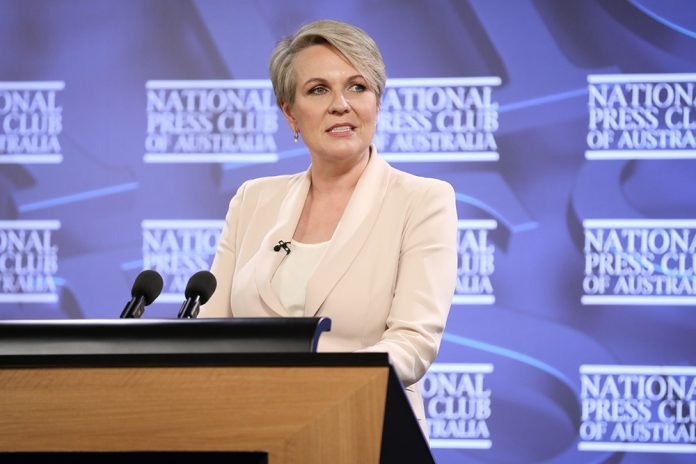Australian environment minister Tanya Plibersek is considering whether to make a 4 cent clothing levy mandatory for the fashion industry. She will decide in July after seeing the industry has sufficiently bought-in to the industry led green levy.
Nearly all discarded clothing ends up in landfill, and clothing collection and repurposing of clothing is mainly run by charities. Australians on average now purchase 56 items of clothing each year, and more than 200,000 tonnes of clothing are sent to Australian landfills annually, according to the Australian Fashion Council.
The minister is currently considering whether to intervene in the sector to improve its recycling and reuse efforts, which could include minimum design standards or mandating fashion brands contribute to a green fund for every piece of clothing they make or import and put to market.
Speaking at an industry event this morning, Ms Plibersek said the global fashion industry had fallen short of expectations. Improved affordability of clothes is a good thing. Parents shouldn’t have to choose between a new pair of school shoes and paying the electricity bill, she added.
She said the fashion industry is responsible for 10 percent of humanity’s carbon emissions; more carbon than international flights and maritime shipping combined.
Ms Plibersek admitted she was also part of the problem, sometimes buying clothes without asking if she really needed it, or without considering the “life cycle” of that clothing. But she said the fashion industry could not rely on changing customer preferences alone to change consumption. She appreciated parts of the fashion industry leading the way on adopting circularity.
A government-funded consortium led by the Australian Fashion Council in June last year launched Seamless, which charts a course for the fashion industry to transition to a circular economy by 2030. Under the scheme, members must pay a 4 cent contribution to the Seamless program for every piece of clothing they make or import, though footwear, single-use protective wear and accessories are excluded.
Seamless funding would then go towards clothing collection and sorting, research and recycling projects, education campaigns and other work to help coordinate the industry’s green efforts. The Fashion Council estimates the scheme will raise about $36 million each year, and up to $60 million if it becomes mandatory for the sector to contribute.
And it hopes the Seamless program will divert as much as 60 percent of clothing from landfill by 2027. Big W, Cotton On, David Jones, Lorna Jane, R.M. Williams, Sussan Group and The Iconic are among the brands who have signed onto Seamless.



